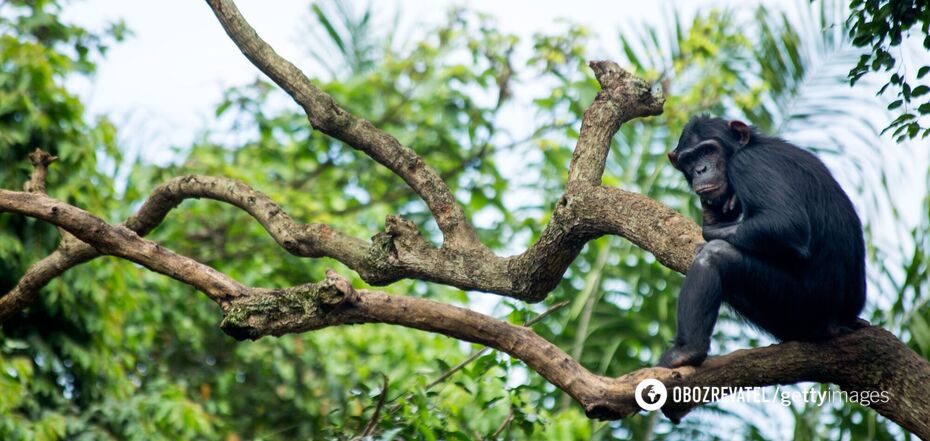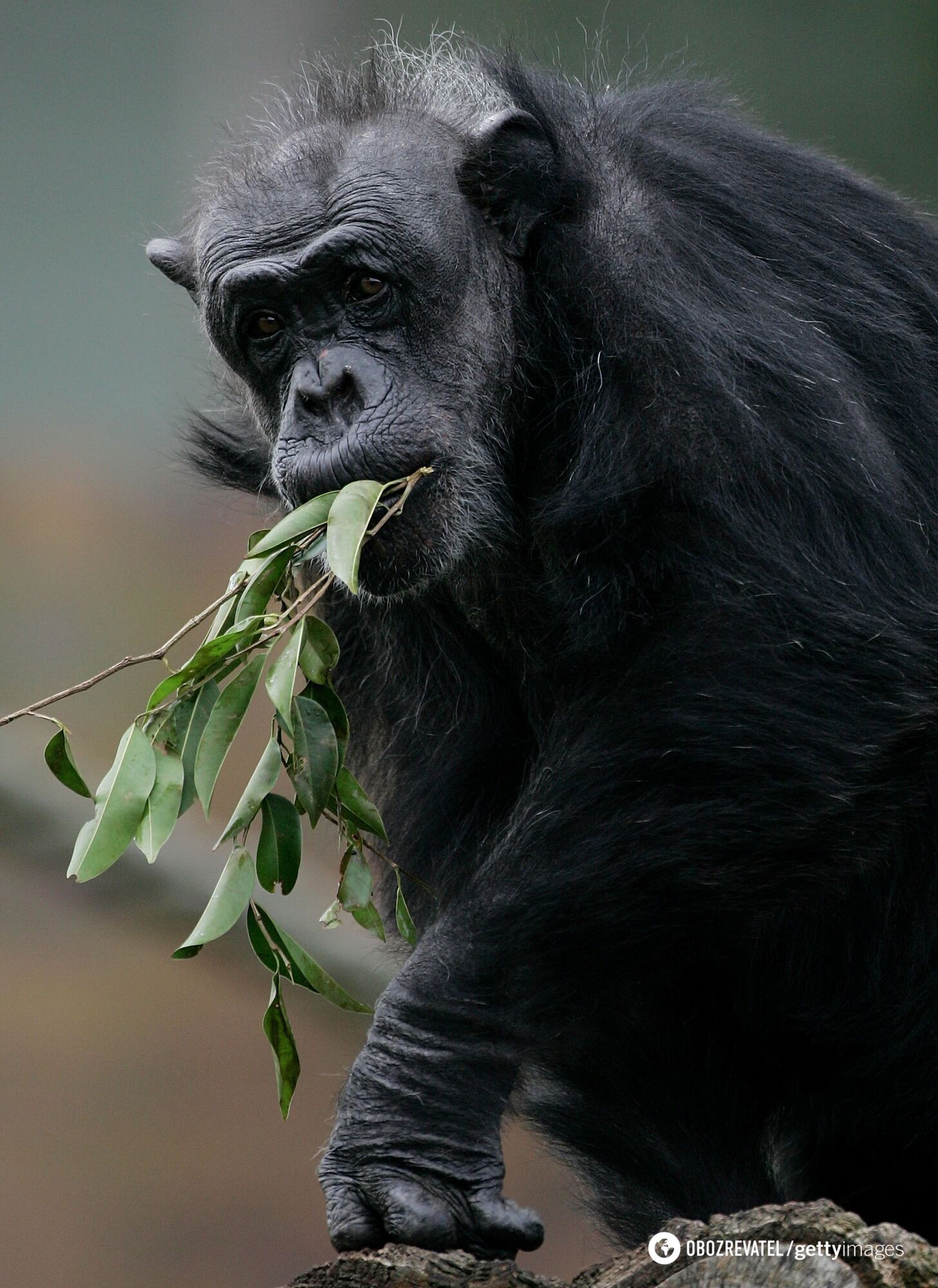News
They even "select" antibiotics. Scientists have found that chimpanzees treat themselves with medicinal plants
A new study by scientists has shown that chimpanzees intentionally seek out medicinal plants with antibacterial and anti-inflammatory properties when they are sick or injured. The authors of the study talk about the incredible pharmaceutical practice of primates and also open up potential new sources of vital medicines for humans.
The idea of chimpanzees self-medicating has been suggested by primatologists for several years, as the animals regularly eat plants that have no obvious nutritional value or contain toxins. To understand exactly why the monkeys consume these tasteless species, the authors of the new study monitored the health and eating behavior of 51 chimpanzees from two populations in the Budongo Central Forest Reserve in Uganda, Ifl Science writes.
In total, the researchers identified 13 plants that the chimpanzees seemed to seek out only in case of health problems. Laboratory tests showed that 88 percent of the extracts studied inhibited the growth of pathogenic bacteria, including six strains that make up the so-called ESKAPE group of harmful microbes that have become highly resistant to available antibiotics.
"After spending months in the field collecting behavioral clues that led us to specific plant species, it was very exciting to analyze the pharmacological results and find that many of these plants show high levels of bioactivity," comments study author Dr. Elodie Freymann.
For example, the strongest antimicrobial effect was shown by the wood of the Alstonia boonei species, which belongs to the Dogbane family. According to the researchers, this plant is well known for its healing properties throughout East Africa, where it is commonly used for a variety of reproductive, bacterial, and gastrointestinal problems, as well as for snakebites, asthma, and dizziness.
During the study, it was observed that numerous chimpanzees ate the dead wood of this tree, probably to treat parasitic infections such as tapeworm.
The bark and resin of the East African mahogany tree (Khaya anthotheca) have proven to be powerful inhibitors of pathogens such as E. coli, which often cause disease in humans and are becoming increasingly resistant to treatment. The authors of the study observed at least three injured chimpanzees consuming elements of this tree, possibly as a means of preventing infection, and another chimpanzee also swallowed the bark while suffering from a persistent cough.
A third of all plant extracts analyzed also had anti-inflammatory properties, with one of the most potent being the leaves of a fern called Christella parasitica. Interestingly, the only chimpanzee the researchers saw eating this fern had an injured arm, which led them to believe that this plant could help reduce pain and swelling.
Since antibiotic resistance is now a major global health concern, Freiman suggests that observing these primates self-medicate could help us develop new, more effective drugs against resistant pathogens.
"Our study highlights the medical knowledge that can be gained from observing other species in the wild and emphasizes the urgent need to preserve these forest pharmacies for future generations," she said.
Only verified information is available on the OBOZ.UA Telegram channel and Viber. Do not fall for fakes!




























